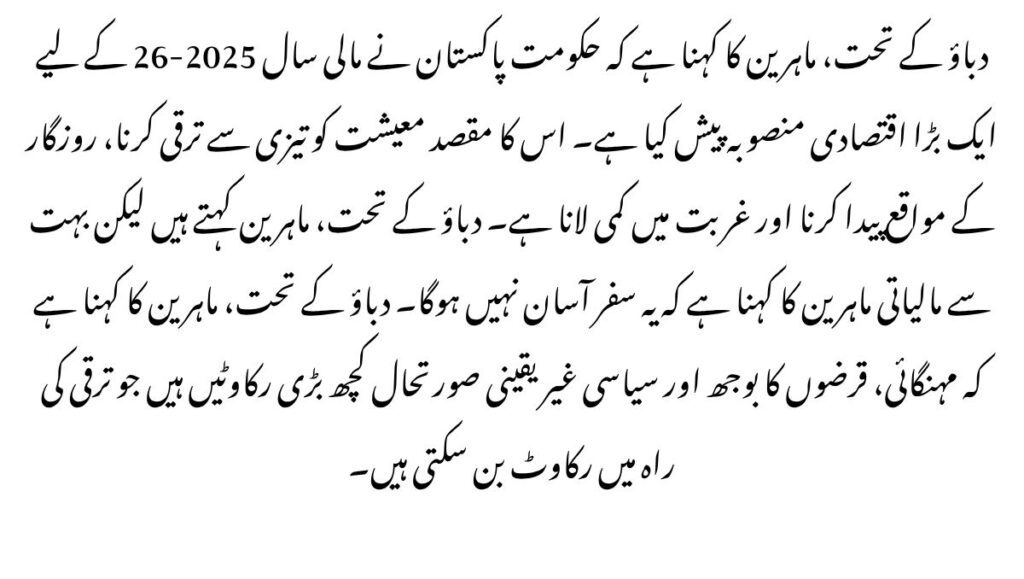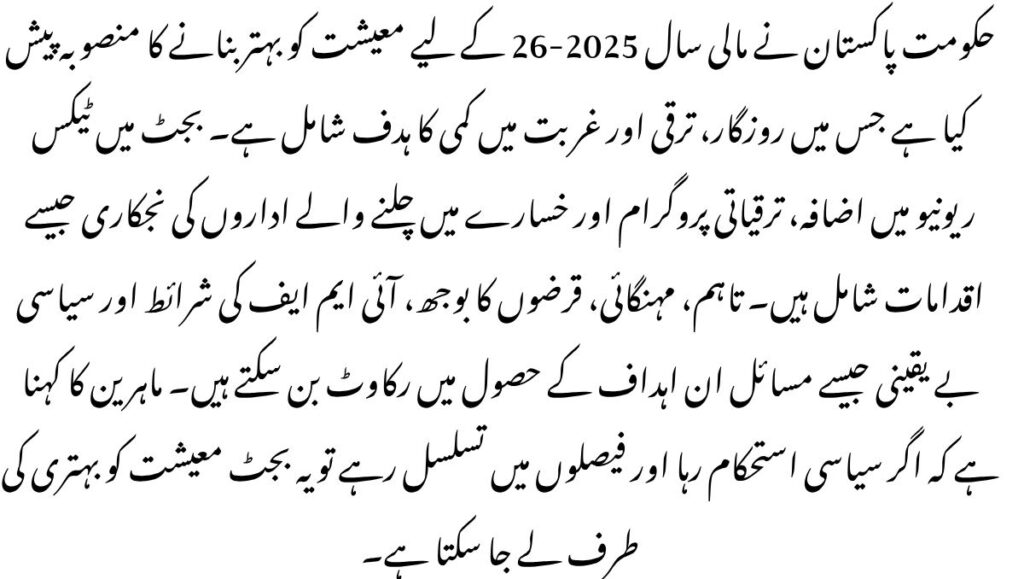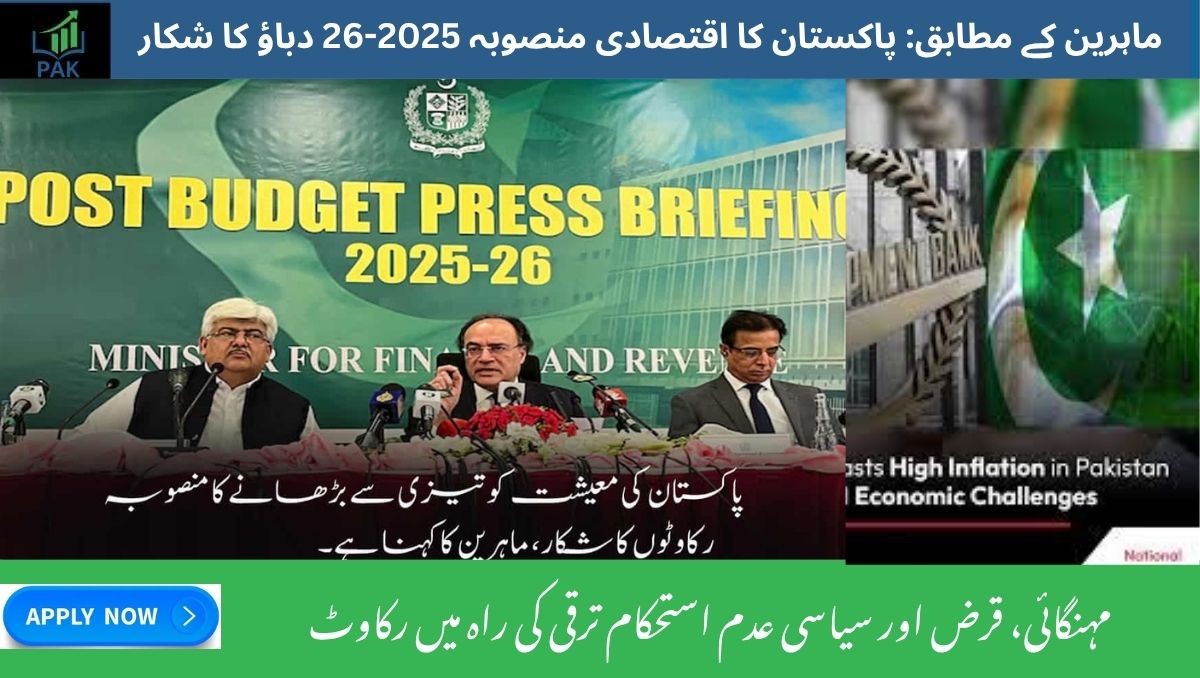Under Pressure, Say Experts The government of Pakistan has presented a major economic plan for the fiscal year 2025-26. Its aim is to grow the economy rapidly, create jobs and reduce poverty. Under Pressure, Say Experts But many financial experts say that the journey will not be easy. Under Pressure, Say Experts Inflation, debt burden and political uncertainty are some of the major obstacles that could hinder the path of growth.

Apply Now: http://finance.gov.pk
What Is the Government Planning?
The highlights of the 2025-26 budget are:
📈economic growth target has been set at 3.6 percent.
💰There is a plan to increase tax revenue by 14 percent.
🏗️Rs 1.4 trillion has been allocated for the Public Sector Development Program (PSDP).
📉 The target is to reduce the budget deficit from 5.9% to 3.9%.
🔧There is a plan to privatize loss-making institutions like PIA and DISCOs.
All these measures are being taken by the government to improve the economy and gain the trust of the public before the next elections.
Also Read: BISP April–June Payments Now Started: Eligibility & District Schedule
Major Challenges to Economic Growth
Debt burden
Most of Pakistan’s budget goes to debt repayment, leaving very little money for health, education, etc.
Inflation
The prices of food, petrol and electricity are continuously increasing, affecting the poor and middle class the most.
IMF conditions
If Pakistan wants to borrow more from the IMF, it will have to:
⚡ Raise Electricity Prices
❌ End Subsidies
💸 Raise Taxes
These decisions could slow down business and increase public discontent.
Political instability
Elections and court cases make things uncertain.
In such a situation, most people are afraid to invest money because the government’s decisions change frequently.
Global Situation Adds More Pressure
Pakistan is also facing external pressures:
🌍 Oil prices are fluctuating, making imports expensive.
🧵Due to the lack of electricity, the garment business abroad has decreased.
💼 People from other countries are hesitant to invest money here due to security issues and frequently changing decisions
What Do Analysts Say?
📊Experts have different opinions on this.
👏 Some people believe the government’s goal is good,
⚠️ and some say it won’t be easy to implement.
Also Read: Good News for Women- BISP Announces Major Expansion Plan Till 2025
Conclusion
The government of Pakistan has presented a plan to improve the economy for the fiscal year 2025-26, which includes the target of employment, growth and poverty reduction. The budget includes measures such as increasing tax revenues, development programs, and privatization of loss-making enterprises.
However, issues such as inflation, debt burden, IMF conditions and political uncertainty may hinder the achievement of these goals. Experts say that if political stability remains and decisions are consistent, this budget can lead the economy towards improvement.

FAQS
Why is Pakistan’s economic plan for 2025–26 under pressure, say experts?
Experts say the economic plan is under pressure due to rising inflation, debt repayments, and political uncertainty, which make it difficult to achieve growth targets.
What are the key challenges in the 2025–26 budget under pressure, say experts?
According to analysts, the biggest challenges are high public debt, energy shortages, and IMF conditions. These factors have placed the budget under pressure, say experts.
Is political instability a reason the economy is under pressure, say experts?
Yes, under pressure, say experts, is a phrase being used to describe how unstable politics and upcoming elections are making it hard to implement long-term economic reforms.
How do external factors affect Pakistan’s economy being under pressure, say experts?
Under pressure, say experts, due to global oil price hikes, reduced exports, and low foreign investment—external factors are worsening the economic challenges.





